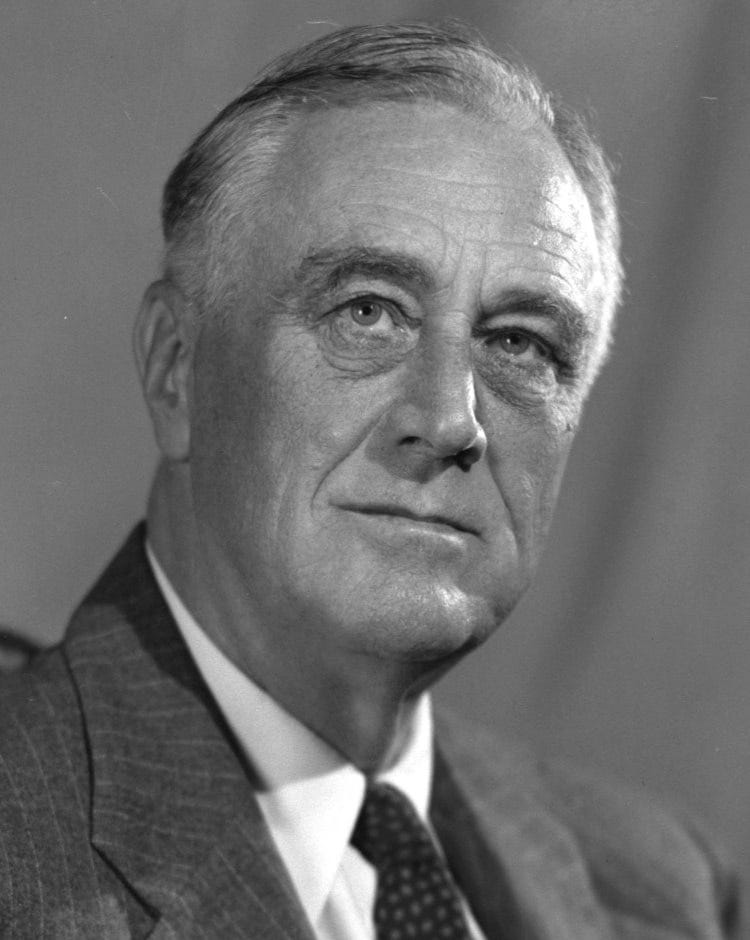When Franklin Roosevelt announced he would run for an unprecedented third term in 1940, his Republican competitors were naturally upset. They claimed he was cynically employing the emergency of war in Europe to break the de facto rule against third terms established by George Washington.
Another group was hardly less disturbed, though they were quieter with their criticism. These were Democratic politicians who had patiently waited through two Roosevelt terms in hopes of getting their chance at the party's nomination. They felt they had to keep their mouths shut. But some, including Vice President John Nance Garner and Postmaster General James Farley, judged that Roosevelt's refusal to step aside closed the window on their chances at the top job.
Mandatory retirement in the United States was largely outlawed in the 1980s by a combination of statutes and court decisions. One result is that tenured professors like me can serve as long as Supreme Court justices and popes. There's only one pope at a given time and only nine Supreme Court justices. But there are tens of thousands of tenured professors. And our collective refusal to retire is one of the causes of the shortage of job openings at colleges and universities.
Franklin Roosevelt eventually died, while still in office. Popes die. Justices die. Professors die. But what if we didn't?
Most people try to delay death. The will to live is a powerful feature of human nature. The dream of immortality plays a large role in mythology and religion. When doctors and biologists describe aging and dying, they often identify organs and processes that break down and finally stop. From these several perspectives, death seems a bug in the algorithm of human life.
But is it? Might it instead be a feature?
Maybe the reason we consider death a bug is that we’re focused on the wrong entity. We humans understandably focus on individual humans. When a human dies, that's it. The algorithm has failed.
But from the standpoint of evolution, the crucial unit isn’t the person but the gene. To the extent our bodies and behaviors are shaped by our genes, the algorithm succeeds if our genes are passed on to another generation. The algorithm has to get each of us at least to the point of sexual reproduction. If we die as children, the algorithm has failed us. Or we have failed the algorithm. But once we’ve reproduced, there's no advantage to our genes for us to live any longer.
There are exceptions to this rule. We should live long enough to ensure that our offspring survive to maturity. And if we amass wealth and power to ensure that our grandchildren survive to maturity, then the family genes benefit. But much longer life in any individual is a diminishing asset.
As in everything else, against the benefits have to be weighed the costs. What if people never died? From the standpoint of evolution, they’d be taking up space and consuming resources that might be used by their offspring, thereby diminishing the reproductive chances of those offspring. To revert to politics, Franklin Roosevelt won his third election and a fourth after that. But his winning margins were smaller than in his earlier races. If he had stepped aside, the Democrats might have won more convincingly in 1944, for example. And they might not have lost control of Congress to the Republicans in 1946.
Humanity is beginning to see what societies filled with old people would look like. Japan, South Korea and other countries with low birth rates find it ever harder to support the old folks. The oldsters themselves are living longer, but the decisive factor is the smaller younger cohort. Imagine if the oldsters never died. The weight on the youngsters would be unbearable.
Death gives breathing room to new ideas. Novel ways of thinking rarely sweep through a population uniformly. People set in their ways, mostly older folks, are slower to adopt new thinking than young folks, who don't have old ways to shake off. It's been said that intellectual revolutions advance one funeral at a time.
Salmon spawn and immediately die, their rotting carcasses fertilizing the stream environments where their offspring will hatch. Some male spiders are cannibalized by their female partners after mating, transferring their nutritional resources almost directly to the next generation. Countless human parents in emergencies have sacrificed their lives to save their children.
For most of us, the end comes less dramatically. But it always comes. And our heirs benefit.



